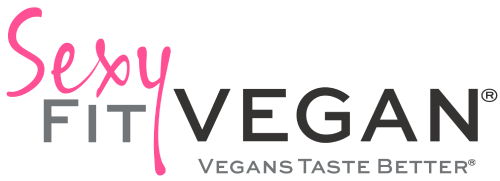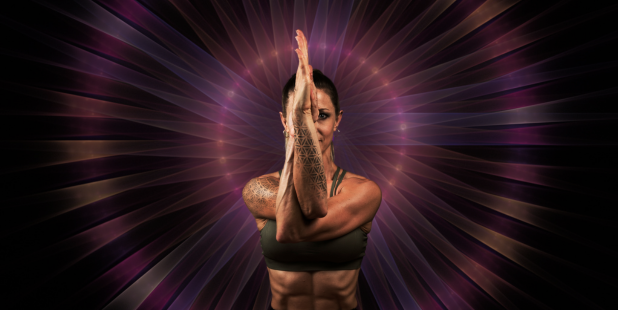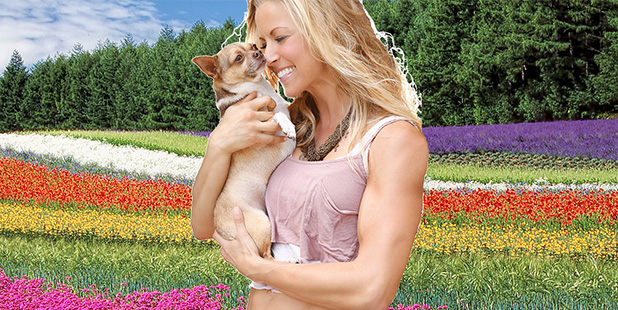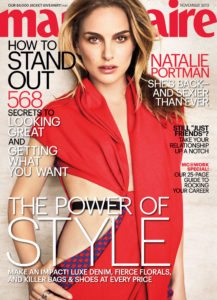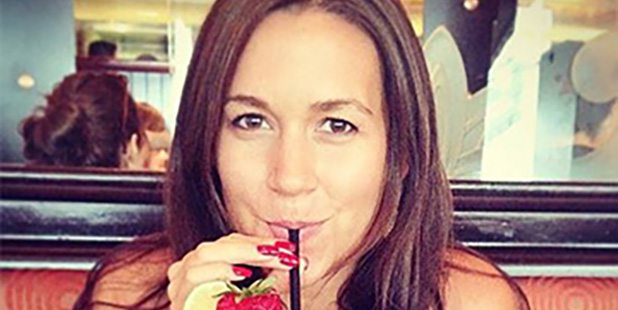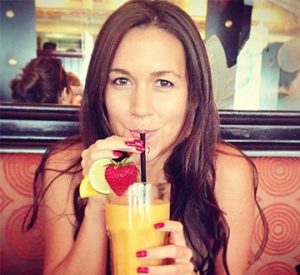Sexy Fit Vegan® exists to help vegan, vegan-curious, and vegan-friendly humans discover their blind spots, find freedom from unhealthy patterns, connect with their higher selves and become holistically healthy and fit, so they can create harmony and align their lifestyle with personal and planetary peace.
The BIRTH OF SEXY FIT VEGAN®
The year was 2013, and it was the year my inner light, which had become dim, began to shine again… It was the year Sexy Fit Vegan® was born.
Let’s rewind so I can share my vegan origin story in a nutshell…
I discovered my life’s purpose, to be a voice of compassion for animals (especially those that typically end up on plates), when I was seven years old and connected the meat on my plate with the animal it was.
My inner light shined brightly when I was a young kid despite being deeply connected to the suffering of animals, because I was full of hope that I could make a difference.
By the time I turned 15 I was fully vegan and had become a passionate animal activist before I could drive a car.
I feel the need to pause here and say… Bless my parents’ hearts for their willingness to drop their kid off to do things like sit in cages on the side of the road to demonstrate the devastating conditions of farmed and lab animals!
In my young mind I thought, “If only people knew what was going on behind the closed doors of factory farms, then they would go vegan too!” I felt empowered, believing it was as simple as spreading awareness.
Discovering that most people didn’t want to be made aware was a bitter pill for me to swallow, and my bright inner light gradually began to dim during my teenage years.
Fast forward almost two decades…
I was living in Miami, and although I had earned my Master’s degree in Social Work, I was working as a personal trainer and fitness instructor, feeling a little lost and very unfulfilled.
I had taken notice that finally, when I asked for vegan options at restaurants, the servers were usually able to help me (or at least they no longer looked at me like I had two heads)!
And then one day it hit me like a ton of bricks…
It was time to stop playing small. It was time to start a vegan blog so that I could reach people all over the globe and do my part to help bring veganism into the mainstream.
I was 33, and there were still so many stereotypes about what it meant to be vegan. Vegans were still thought to be weak, or hippies, or angry up on their soapbox.
I wanted to show the world that being vegan… that compassion… is sexy, and that you could be fit in body, mind AND spirit, and have fun as a vegan… that it wasn’t a sacrifice at all!
And so Sexy Fit Vegan® was born.
THE SEXY FIT VEGAN: THE EARLY YEARS
I created a website and blog without a real plan for making it into a business. I just knew it was time to reconnect with my purpose to be a powerful voice for veganism again.
The Sexy Fit Vegan brand quickly took off and gained momentum.
What I came to realize however, is that in order to truly connect with my audience and be a powerful force for the vegan movement, I needed to find the courage to be vulnerable (thanks in part to Brene Brown’s TEDx talk).
So in 2017 I found the courage to share about my own healing journey with the world. I wrote a series of blog posts titled, “From Disordered Eating to Plant-Empowered Living.”
Before long I had a book published, launched The Vegan Life Coach Podcast, and developed a coaching program to help people make the transition to a plant-based lifestyle and develop a healthy relationship with food, and their bodies. These resources have helped thousands of people uplevel their health holistically over the years.
A GROWING CONNECTION TO CONSCIOUSNESS CREATES A DISCONNECTION WITH THE BRAND
Meanwhile, my personal journey toward wholeness had taken me down an intensely spiritual path, exploring quantum mechanics (which I consider the intersection of science and spirituality), and experimenting with methods of expanding my own consciousness.
As my deep-dive into consciousness intensified, I started feeling less connected to the Sexy Fit Vegan® brand.
My network expanded and I began working on new projects, some of which involved incredible new partners and branding that was largely disconnected from the Sexy Fit Vegan® brand.
The thinking was in part that creating a “hook” that was less “in your face” with the word, “vegan” would make it more inclusive and attract a wider audience.
Then, in 2022, my world became intensely complicated, a story I share about in my Rise & Thrive Manifesto.
Long story short, I experienced extreme burn-out and ended up in Peru for a 12-day ayahuasca retreat at The Temple of the Way of Light. Upon returning home, my beloved cat, Bob, fell off the balcony in front of me and died in my arms on the way to the ER.
The pain of Bob’s death felt unbearable, and yet, thanks to the discoveries I’d made with the guidance of plant, human, and animal teachers, I was able to work with the pain and allow myself to fully mourn and grieve.
I felt like I was on a fast-track of inner-evolution, living with intention and in gratitude most of the time, whether experiencing joy or sadness, pleasure or pain, which I believe are all necessary if we’re to have the full human experience.
It was from this new state of being that the Rise and Thrive podcast was born.
Months later, I connected with my amazing boyfriend, Quinn (also vegan and committed to inner-evolution), after being single for several years.
This leads us to November 10th, 2023, when the light of my life, Shye (my senior “ride or die” rescue chihuahua), suddenly crossed the rainbow bridge. I invite you to read THIS blog post celebrating Shye’s extraordinary story and sharing about my grieving process.
In the months following Shye’s death, in the midst of the intense grief, I committed to connecting deeply with my sense of trust in the Universe.
The Universe responded. It delivered me Elayna Fernandez, brand strategist, “student of pain,” and founder of the wildly popular brand, The Positive Mom.
SEXY FIT VEGAN IS REBORN
I shared with Elayna that I felt like I was “outgrowing” the Sexy Fit Vegan® brand, and was considering ditching it altogether.
With her guidance, and a lot of soul-searching, I’ve instead begun the process of rebranding in a way that reconnects me with Sexy Fit Vegan and aligns the brand with my purpose and mission in life.
I’m now super excited about the direction the brand is headed!
The way I see it, “sexy” has nothing to do with our age, gender, or appearance. Sexy is an authentic way of being, and an empowering way of moving through the world. I came up with an acronym for the word sexy.
S.E.X.Y. stands for:
Soul-aligned
Embracing your body
eXploring life playfully
You being you
I also gained clarity about the Sexy Fit Vegan mission moving forward.
Sexy Fit Vegan exists to help vegan, vegan-curious, and vegan-friendly humans discover their blind spots, find freedom from unhealthy patterns, connect with their higher selves and become holistically healthy and fit, so they can create harmony and align their lifestyle with personal and planetary peace.
Boom – I am ALL IN!
SHARING THE REBRANDING PROCESS
It’s now been over three months since Shye passed, and thanks in large part to the love and support from my compassionate community, along with the help of a recent psilocybin journey, I feel inspired to create again.
And here’s the thing…
I don’t want to go through the creation process behind closed doors.
I’m much more interested in SHARING as I go, and having you be involved, because, even as an introvert, I have come to understand that connection and community really is EVERYTHING!
For that reason I have started sending out a weekly Sexy Fit Vegan “Soul-Aligned Sunday” newsletter (sign up to receive these intimate updates HERE). I am also working on creating an online community where we can gather to share, support, and raise our vibrations collectively.
I’ve received hundreds of responses from the community connection questionnaire I sent out, and I love reading your submissions!
A FOCUS ON HELPING PEOPLE OVERCOME EMOTIONAL EATING FOR SUSTAINABLE WEIGHT LOSS
One of the common themes I noticed when reading your answers in the community questionnaire, is that emotional eating is a major barrier to weight loss and holistic health for so many of you.
Given my passion for this pervasive challenge, my formal education (Master’s Degree in Social Work and Certification for working with people who experience disordered eating) and eight years experience coaching clients who struggle with emotional eating (hear from them directly HERE), I’ve decided to launch my most powerful program to date this spring.
The program is designed to help people who are tired of feeling powerless over cravings and are ready to find freedom with food so they can release excess body fat for good and create a meaningful life they love.
There is SO much nutrition information out there these days that it can be overwhelming. It’s often not a lack of knowledge, but the difficulty people have to apply the knowledge to their lives, consistently, that trips them up and keeps them stuck in unhealthy patterns and habits.
In the meantime, I’m also continuing to work with a select number of clients individually.
One of my recent clients, Jen Whorton, shared her incredible, inspirational story on an episode of Rise & Thrive (listen HERE).
If you’d like to explore the possibility of working with me 1:1, you can simply send an email to [email protected].
A NOTE OF GRATITUDE
I believe that we’re all here to dance through life together with loving awareness, and to raise our vibrations collectively for the benefit of humanity, animals, and the Planet.
I wake up every morning full of gratitude for the opportunity to live my purpose and share my message of compassion through the platform I’ve created, which wouldn’t be possible without YOU.
I thank you. I appreciate you. I love you!
